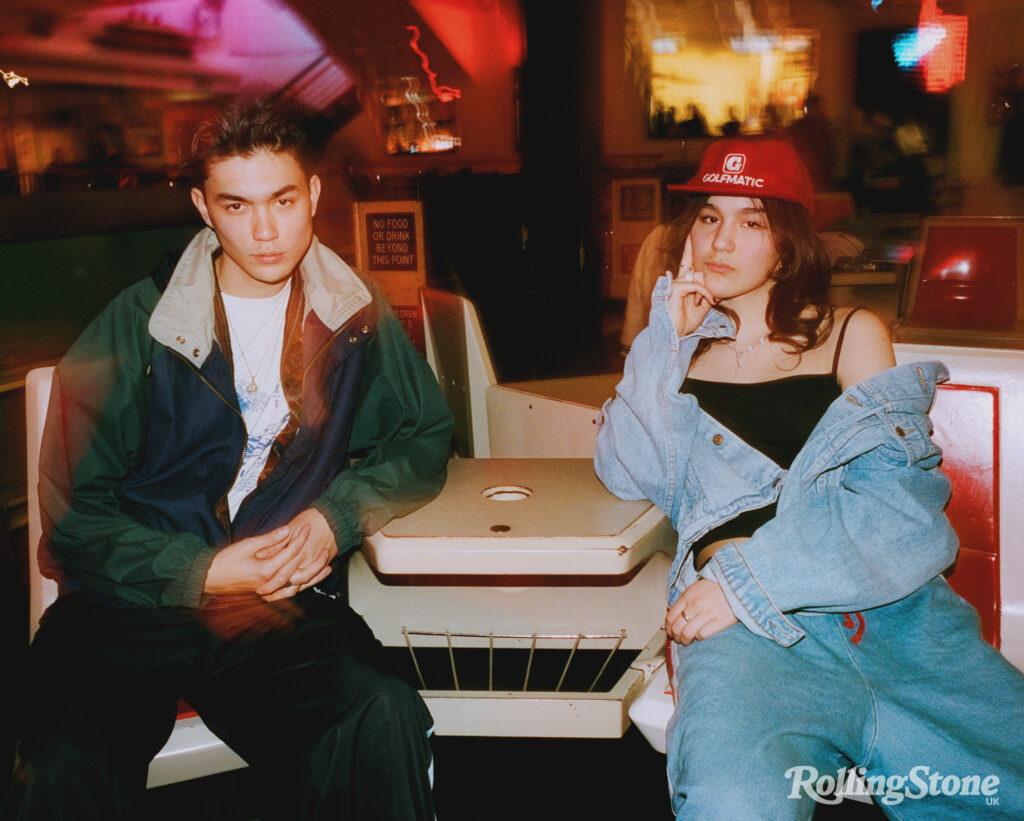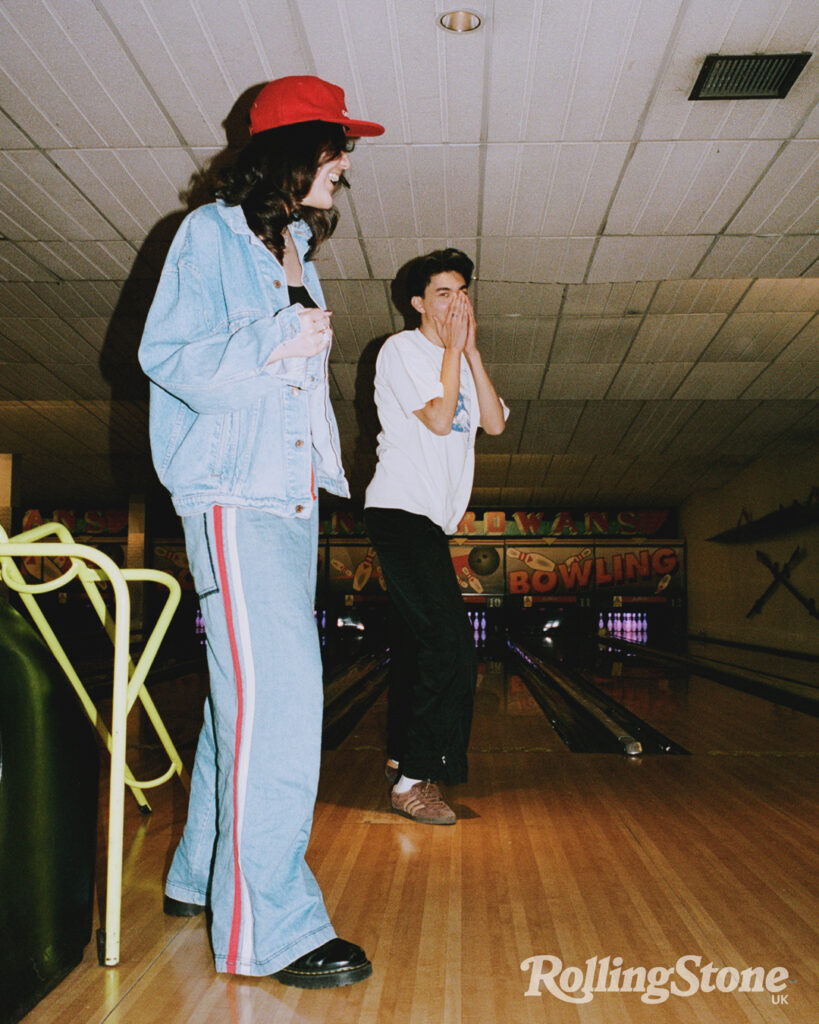Wasia Project: ‘We’re in a playground of sound and going crazy with it!’
Heartstopper actor Will Gao and his sister Olivia Hardy have created a blend of contemporary alt-pop that also draws influence from their traditional music training. Here, they explain why they want to make classical music and jazz accessible for all
By Emma Wilkes

‘Billie Eilish!” “Phoebe Bridgers!” “Boygenius!” “Frank Ocean!” “Agh, I don’t know, [my] mind’s blank… Beyoncé!”
Siblings Will Gao and Olivia Hardy are playing a game. They’re batting back and forth some of the names that influence their band, Wasia Project. Many of the artists are quintessential staples of Generation-Z Spotify playlists, but others, such as ABBA, Elton John, The Beatles and ELO, are exports from their parents’ CD collection. During their childhood, they’d spend evenings at home dancing to whatever was blaring from the speakers.
They haven’t yet touched on the influences, however, that make Wasia Project unique. Both Gao and Hardy have a background in classical — from both Western nations and East Asia — and jazz music, and both can play an instrument. Gao, who found fame acting in Netflix’s coming-of-age smash hit Heartstopper, took up classical piano at a very young age, while Hardy learned violin via the Japanese method of Suzuki, which favours learning by ear over using sheet music. “In the classical music world, it’s not been very beneficial,” she says, speaking over Zoom in a bedroom with mint-green walls, “because reading a lot of sheet music is an important part. But it’s helped with our creative process — it’s a lot more intuitive.”
What do they love about those styles? “There’s such pure emotion in classical music,” says Gao. “When classical music is tragic, it’s gut-wrenching. It can be really intense. I think that passion and intensity you can hear in it, and also in jazz, is equivalent to the kinds of music being created today.”
Their background in those styles bled into their contemporary alt-pop palette naturally and spontaneously. “We can’t not acknowledge or invalidate our past history with those genres,” Gao continues. “It’s inherent in our work, even when we don’t realise it’s there. I don’t think we could do it any other way.”

Classical and jazz are, arguably, an acquired taste, frequently dismissed as too highbrow, too stuffy or too dense. What the siblings have done with Wasia Project, however, is inadvertently wedge open a door that makes those sounds more accessible and contemporary for their audience, many of whom are their age, if not younger.
“It’s getting more and more difficult for people to get access to classical and jazz; it’s almost starting to become more of a closed shop in a lot of ways,” Gao acknowledges. “I think one of the ways forward is to make it accessible by blending [those genres and pop] and having sections where the music is very classically influenced, and that hopefully leads people to see [where that comes from].”
“It’s all about trying to make them less rigid and making people feel like classical and jazz really is for them,” Hardy adds. “They’re such huge genres; there shouldn’t be this arbitrary shutting down of them, [like] ‘Oh, that’s not for me.’”
Gao and Hardy’s musical journeys weren’t identical, although their paths ran parallel to one another, and they both attended each other’s concerts “all the time” growing up. Gao — three years older than his sister, who at the time of writing is a few days away from finishing her A-levels — stumbled down the pop rabbit hole earlier than his sibling, too. “I had this realisation when I was 14, when I was like, ‘Oh my gosh, you can write a song and it doesn’t have to be a concerto!’” he says with a grin. Their paths eventually converged when they began Wasia Project in 2019, uploading debut single ‘why don’t u love me’ to SoundCloud that same year.

Since then, the siblings have progressed from DIY recordings on GarageBand to working on their ethereal, eclectic creations in a studio with producer Luke Pinell for their 2022 EP ‘how can i pretend?’. Two further singles — the softly sunny ‘Petals on the Moon’ and the gently unfurling, intimate jazz-pop number ‘My Lover Is Sleeping’ — followed this year, with another two set to be released this side of Christmas. Those songs are set to become, in Gao’s words, “the ground floor of the building we want to create”.
Wasia Project’s fanbase thrives online, with social media offering a vital forum for fans to connect with each other and with the band themselves. “The atmosphere is very community-based,” explains Hardy. “[The community’s gone beyond] the music because people have really made friendships and connected through the music. We get a lot of people saying they’ve united with people because of a song, and things like that,” explains Hardy.
Some of them stumbled across the band because of Gao’s role in Heartstopper, where he plays Tao Xu, the loyal but occasionally prickly best friend of protagonist Charlie (Joe Locke). Although a fraction of the fanbase might have come because of his TV fame, they’ve stayed for the music. “I don’t think they’d come if they didn’t like the music,” Gao reckons. Others, however, have found Wasia Project without knowing Heartstopper,meaning that on stage, he isn’t defined by his experience on the small screen.
Things have moved a little slower for the band in 2023 as Hardy has had exams to prepare for, but she isn’t planning on going to university immediately — “Uni will always be there, but music is for now,” she says. She’ll therefore soon be free to hammer the glut of ideas the pair are sitting on into shape, moving ever closer towards their goal of creating “a skipless album”.
“We’re experimenting with new sounds. We’ve usually just used piano and voice, which is stripped-back and raw and powerful in and of itself, but being in the studio and being able to use strings and new beats and things like that is so exciting,” Hardy concludes. “We’re in this playground of sound. We’re going crazy with it.”
